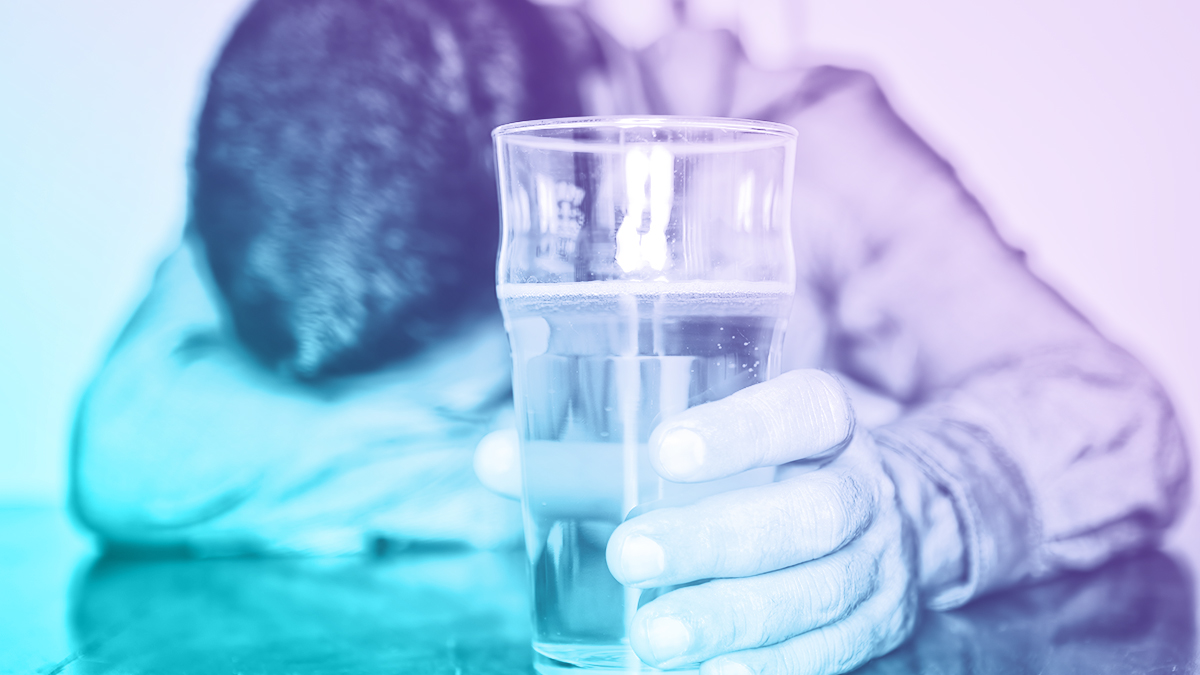Get Clean! Call us today!
Medical Detox Centers in Florida
For many living with alcohol or substance use disorder, recovery can seem like a far-off feat. Your body has developed a physical dependence on these substances, maybe without you even realizing it. The risk of relapse for those who use alcohol, opioids, or benzodiazepines such as Xanax is high due to the withdrawals caused by not using. These withdrawals can be dangerous and even life-threatening without medical intervention.
At Clean Recovery Centers, our staff of clinicians is trained to provide medication management and 24/7 care during this crucial time. We also have a team of therapists to get you through the emotional highs and lows that come with detox. Let’s explore the full program offered by Clean Recovery Centers.

What Is Medical Detox?
Detoxification, or detox, is the process of ridding the body of toxins such as alcohol or opioids. When the body has become dependent on a substance, the neurotransmitters within the brain have adjusted for the new chemical balance. When the substance is stopped abruptly, the brain does not have time to recalibrate the neurotransmitters, causing symptoms of withdrawal.
The most common symptoms of alcohol withdrawal include:
- Irritability
- Anxiety
- Shakiness
- Restlessness
- Headaches
- Nausea or gastrointestinal issues
- Tremors
- Hallucinations
- Seizures
- The most common symptoms of opioid withdrawal include:
- Insomnia
- Runny nose
- Sweating
- Abdominal cramping
- Diarrhea
- Dilated pupils
- Anxiety
- Muscle aches
Withdrawal symptoms most commonly appear at the very beginning of detox. Medications are used to manage these symptoms and prevent relapse. It is important to have both physical and emotional support during this time.
How Long Does Medical Detox Take?
The length of detox can vary from person to person. Factors such as weight, gender, and length of use will play a role. Withdrawal symptoms can set in as soon as 6 hours after the last use of a substance, and it can take up to 3 full days for the substance to be completely out of the system. Those who have higher body fat percentages will take longer to detox as the substance will be stored in the fat reserves. The longer you have used a substance, the higher the amount will be stored in the body as well.
Binge Drinking
For those who binge drink, the risk of withdrawal increases exponentially. Heavy drinking refers to binge drinking on more than 5 occasions in a month. Men who consume 15 or more drinks per week and women who consume more than 8 drinks per week are also classified as having heavy drinking patterns.
The longer the drinking pattern continues, the higher the likelihood of severe withdrawal symptoms. Even if you have only been excessively drinking for 30 days, withdrawal symptoms can still present themselves when you stop.

Alcohol & Drug Dependence
With any alcohol, opioid, or benzodiazepine use, the risk of dependence is always present. That is because these substances build up in the body. After so much misuse, it will require more of the substance to reach the desired effect. The brain adjusts to the new dosage each time, rewiring the neurotransmitters to account for the changes in chemical balance. Every time the dose increases so does the amount of chemicals released to create balance in the brain and body.
The path from dependence to addiction is a short one. Once a person relies heavily on a substance to make it through the day, physical cravings start to develop. The body will begin to experience uncomfortable and even painful symptoms when the substance of choice is not present. These are withdrawal symptoms and can be very difficult to manage and overcome. In time, a person becomes addicted to alcohol or opioids and requires frequent consumption to keep withdrawal symptoms at bay. The urge to use is powerful and almost constant, and it is difficult or impossible to limit your intake. Most people with addiction are unable to stop themselves, even if they want to.
The Effects of Alcoholism and Substance Use Disorder
Alcoholism can manifest both physically and mentally.. The most common physical side effects of alcohol use disorder include:
- Irregular heartbeat
- Stretching of the heart known as cardiomyopathy
- Cirrhosis
- Fatty liver
- High blood pressure
- Stroke
- Pancreatitis
- Cancer
Physical side effects of substance use disorder can vary, but the most common include:
- Kidney or liver disease
- Depression, anxiety, and other mental disorders
- Digestive issues such as constipation or cramping
- Insomnia
- Hormonal dysfunction such as irregular menstrual cycles for
- women and sexual dysfunction for men
How Long Does It Take to Recover from Addiction?
Recovery from addiction is not a linear trajectory. Every person will have a different journey because not everyone became addicted the same way. The beauty of recovery is in the self-discovery and hope found along the way.
A Recovery Timeline
The first step on the recovery timeline is to have a willingness to try. Taking the leap to try something new instead of drinking or using substances is a huge accomplishment. This is where seeking a treatment program is most beneficial.
Once in treatment, detox is the first step. Withdrawal symptoms are uncomfortable, which is why most will return to substance use at this time. It is critical to detox in a medical environment so that serious symptoms can be monitored and medicated as needed.
Over the next several weeks after detox, it’s important to start building the skills and support network needed to successfully maintain a healthy lifestyle. Therapy and counseling play a significant role in this step, as most professionals recommend both individual and group sessions to help people work towards their goals while focusing on healing their minds and bodies. For many people, this includes getting to the root of their alcohol or substance use disorder and dealing with the underlying causes.
This phase of recovery looks different for each person. Some may find success living at home under the care and supervision of loved ones while attending regular meetings and therapy sessions. Others will need constant accountability and continued medical and mental health treatment from a professional center or community.
Life-long recovery is always the end goal after detox and treatment. Therapy and support groups are recommended to keep up with staying abstinent from substances. Community in recovery provides support even if it has been years since the misuse of substances.
How to Support a Loved One Recovering From Addiction
The best way to support a loved one in recovery is to be open, honest, and respectful. Show kindness and empathy when appropriate. It is also key to set healthy boundaries and seek support when you need it as well. Family therapy is just as important as individual therapy for the one in treatment. It is imperative to take care of yourself to be able to be the best support for your loved one.
When first in recovery, your loved one will be feeling a lot of emotions that they don’t know how to process. They may lash out or say things they don’t mean in the moment. Remember that they are on a journey to rediscover themselves, and not to take anything to heart.

Can You Be Cured From Alcoholism and Substance Use Disorders?
There is no magic solution or treatment that prevents a person from craving or misusing substances ever again. Most people would agree that overcoming any type of addiction requires a lifetime of commitment daily. In many situations, the temptation never goes away; it is just much easier to resist with the right support system.
The good news is that many methods, therapies, and treatments are very effective at detoxing the body, breaking addiction, and building a healthy and fulfilled life of sobriety. This is not an overnight process. It takes months and often years of effort to break the bonds that alcohol or drug misuse can have on a person’s body and mind. With the support of caring loved ones and experienced professionals, total recovery is possible.
Getting Treatment for Alcohol and Substance Use Disorder at Clean Recovery Centers
Addiction does not define who you are. At Clean Recovery Centers, our treatment program for alcohol and substance use disorder is tailored to each of our clients as individuals. Our three-phase approach includes:
Preparation: the first phase of treatment. This includes a 24-hour detoxification period which is monitored around the clock both medically and with emotional support. Our clients then move to residential I treatment. Individuals are in a 24-hour, 7-days-a-week, live-in environment. Medical support is available if needed, but the main focus is on individual therapy, group therapy, and family therapy. The length of stay in this treatment phase is 3-4 weeks.
Action: phase two, this step is referred to as Day/Night Treatment or DNT. While most clients choose to live in community housing on-site for this phase, it is not required. The program is a minimum of 30 hours of services per week. The four main focuses of DNT include experiential processes, defense mechanism identification, belief system exploration, and symbolic integration. All of these components are to help transition core beliefs and develop balance to a clean life. This phase of treatment typically lasts 2-3 weeks.
Maintenance: phase three, two versions of outpatient services, intensive outpatient and outpatient. For intensive outpatient, or IOP, the client can choose to reside in a 24/7 monitored transitional living on-site or at home. The program is 9 hours per week minimum and continues with individual counseling. Outpatient is for those living at home or in sober living off-site and is 2 hours per week. Both services build on the skills learned in inpatient treatment and therapies to continue on the path to living substance free. The length of stay for phase three is around 6-8 weeks.
Alumni: for after completion of the three-phase program. We urge our clients to join our alumni group that meets once a week and holds events throughout the year.
If you or someone you love has been misusing substances such as alcohol or opioids, detox will be the first step to addiction treatment. Clean Recovery Centers is here to provide a fully supervised detox that keeps you safe and comfortable. Reach out to us today at (888) 330-2532.
FAQs About Medical Detox and Substance Detox
What is involved in detoxing for alcoholism or substance use disorder?
Detoxing from alcoholism or substance use disorder involves 24-hour supervision and medication management to control cravings and treat withdrawal symptoms.
How long does it take to detox from alcohol or substances?
On average, it takes three days to detox from alcohol or other substances.
